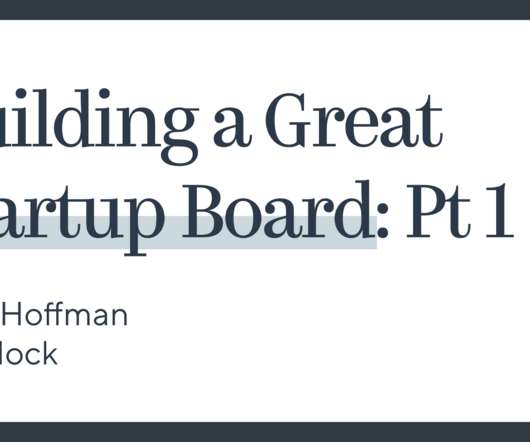Flexible VCs With Structures Between Equity and Revenue-Based Investing
David Teten
JANUARY 21, 2021
(co-written with Jamie Finney, Founding Partner at Greater Colorado Venture Fund. V: Should you raise venture capital from a traditional equity VC or a Revenue-Based Investing VC? VI: Revenue-based financing: The next step for private equity and early-stage investment. II: Who are the major Revenue-Based Investing VCs?











































Let's personalize your content